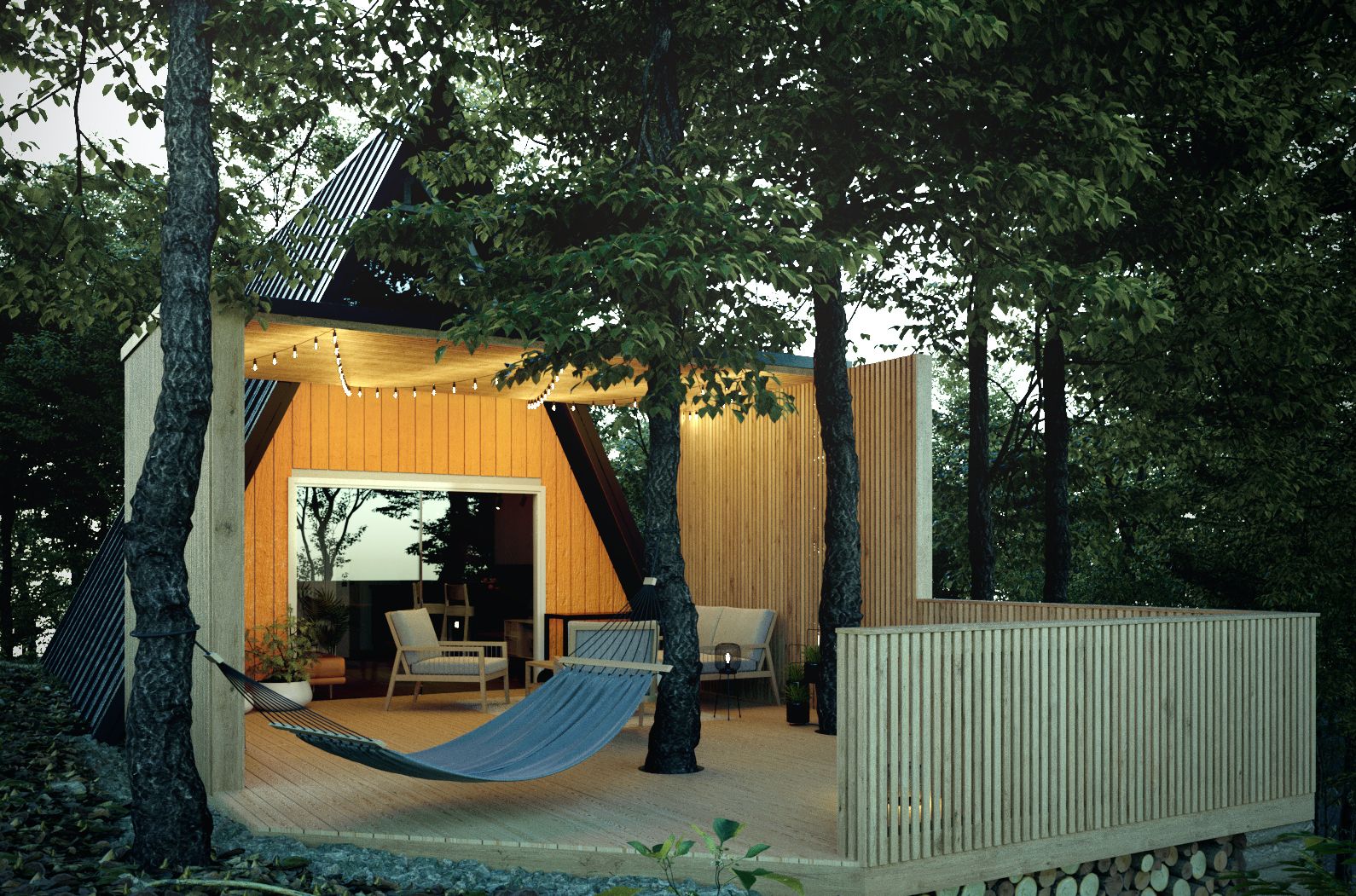Love project in Mátrakeresztes—says the slogan of Kabinka, and that’s no exaggeration. Levente Vigh, the initiator and owner of the cabin, fell in love with the area at first sight, and now that the house is complete, we are certain that Kabinka will remain a lifelong love affair in his life. The goal is to share this love with those who travel here to experience the charm of the forest and the cabin.
Rally, yoga, meditation, redesign, pandemic—this is the rough summary of the path that led to the opening of Kabinka in Hungary’s Mátrakeresztes. The idea to have a small cottage in the forest popped up in the mind of Levente Vigh in 2012, when he stayed at the Börzsöny Mountains for a rally race. During the next five years, he often came back here to hike, but it wasn’t until 2018 that he took action. His determination was also fueled by a professional burnout, working in economics. “I had to redefine my inner workings, and find space in my life to start dealing with something that calls my name. Kabinka was very much my calling. Yoga and meditation, both of which play an important role in my life, helped me to see the necessary steps and to clear the picture: there are other ways to live effectively, not just by working as much as possible,” says Levente about Kabinka’s background story.
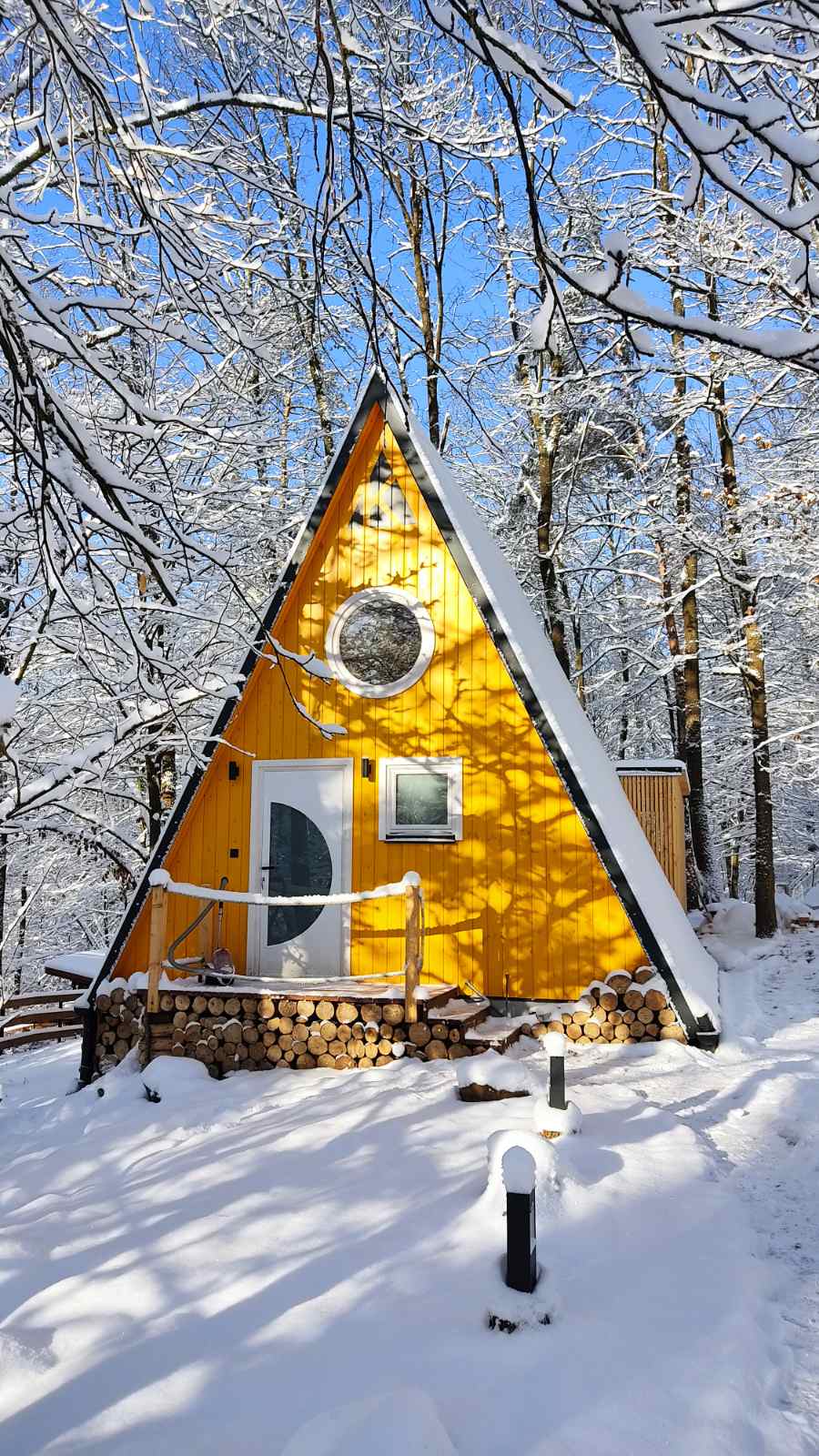
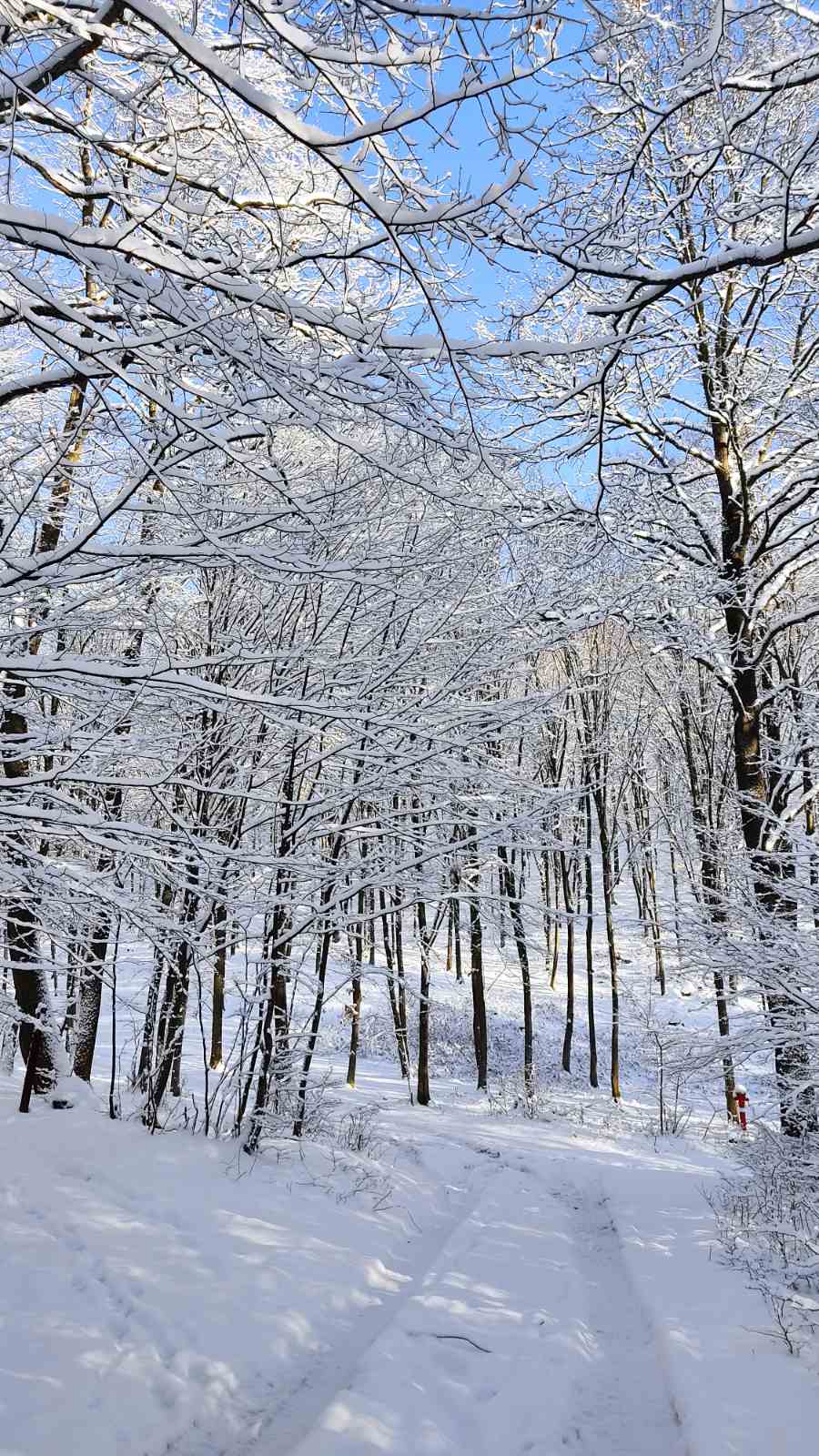
Nowadays, Levente is probably not the only one dreaming about a forest cabin, however, he can tell us about a bunch of practical things concerning how such a project actually works. Though probably even he can’t give a one-size-fits-all recipe, despite all the people contacting him with this request, listening to his stories (Levente also runs a vlog about Kabinka’s journey), one can spot a few details without which Kabinka might not exist. For Levente, the first such detail was finding someone to inspire him and help with the work: his friend from the world of rallying, Péter Tóth, was the person for whom neither the forest nor manual work was an unknown concept, and this accelerated the project significantly. Levente selected the plot in Mátrakeresztes on his first-ever speed rally race with the help of Péter, who lives near the area. After a little bargaining, the lot changed hands, and the planning process could begin, which eventually dragged on for months. A change was brought about by Covid-19: “The pandemic pressured us to move: we had to start working. By the time, I also had a concept in mind: I came to the conclusion that I didn’t want to demolish the original house. Instead, I’ll keep what I can and rebuild it.”
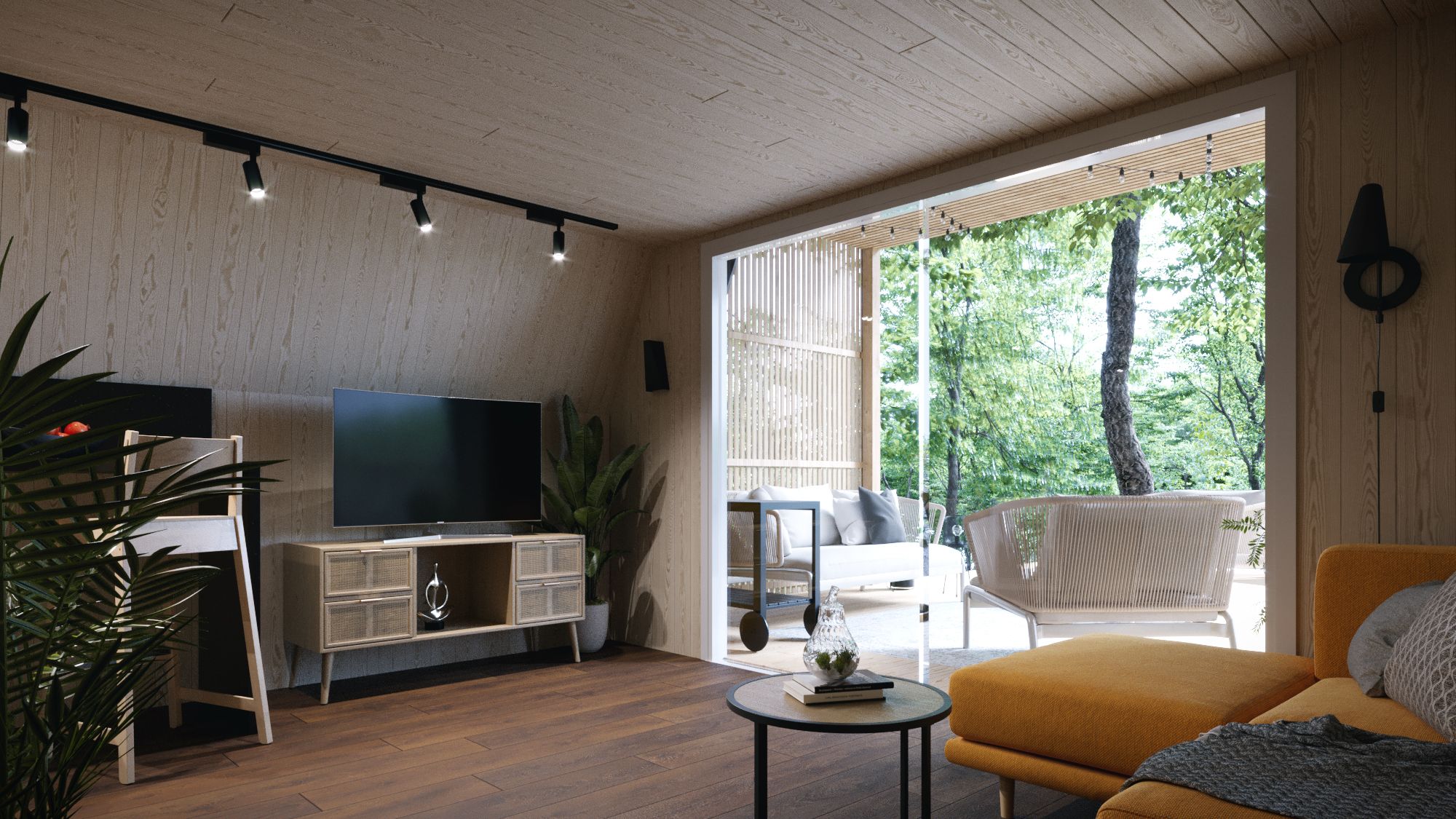
The second step was finding this concept, and the third was finding the right professionals. In this case, it was finding the team of Studio This: Timi Hadnagy and István Ulmann. “From the very first minute of planning, we knew that our client wanted a quick and spectacular solution, where guests can feel at home in the middle of the forest, an hour away from the capital. The main task was to open the house towards the forest with a terrace and a tub, and to redesign its doors and windows. Instead of extensive glass surfaces, form and function were brought to the fore during the design process. We needed a comfortable, spacious bathroom and nooks to chill and relax with USB chargers and mood lighting. Many of these spots can be found around the cabin compared to its small floor area,” says Timi, the interior designer, about the concept.
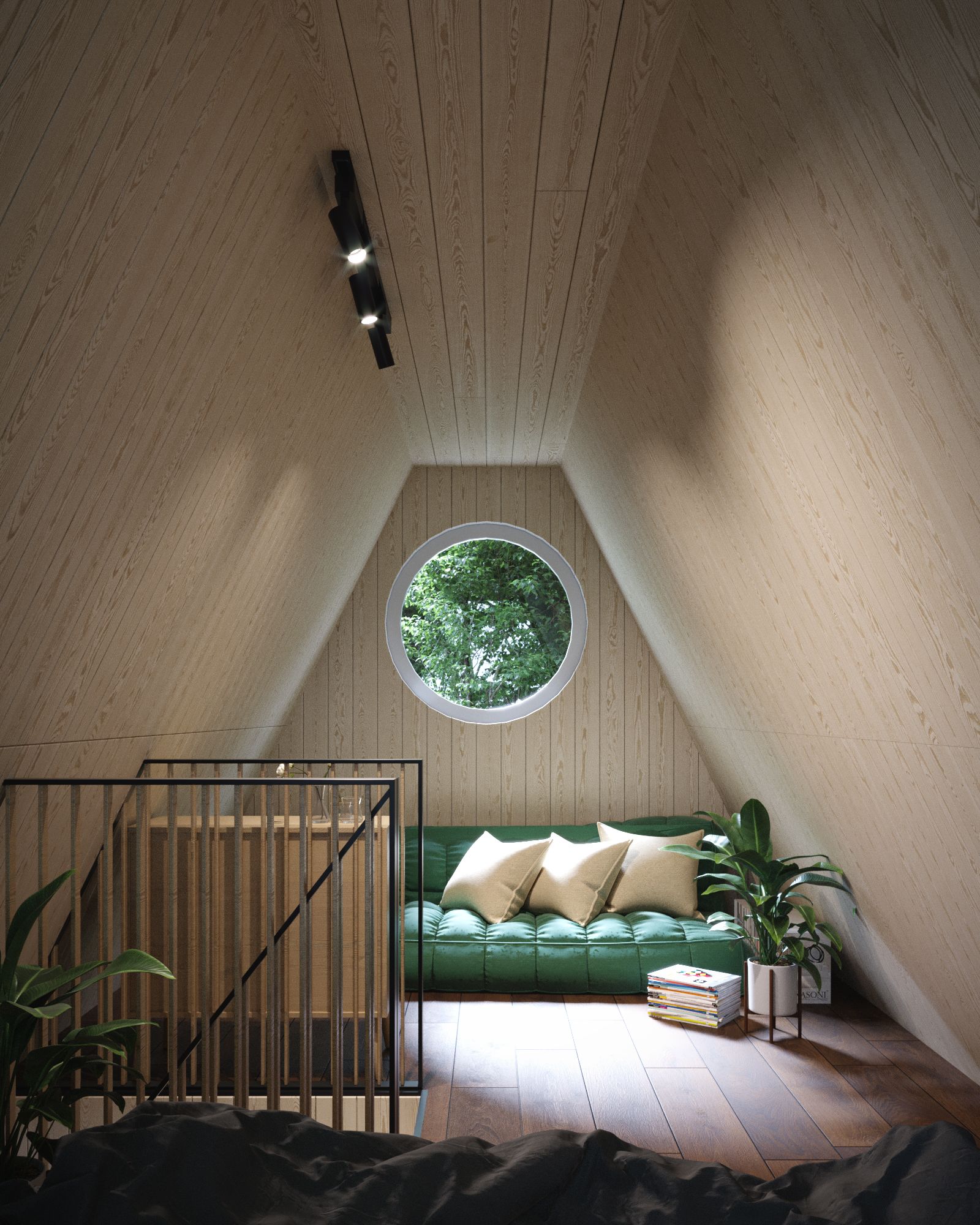
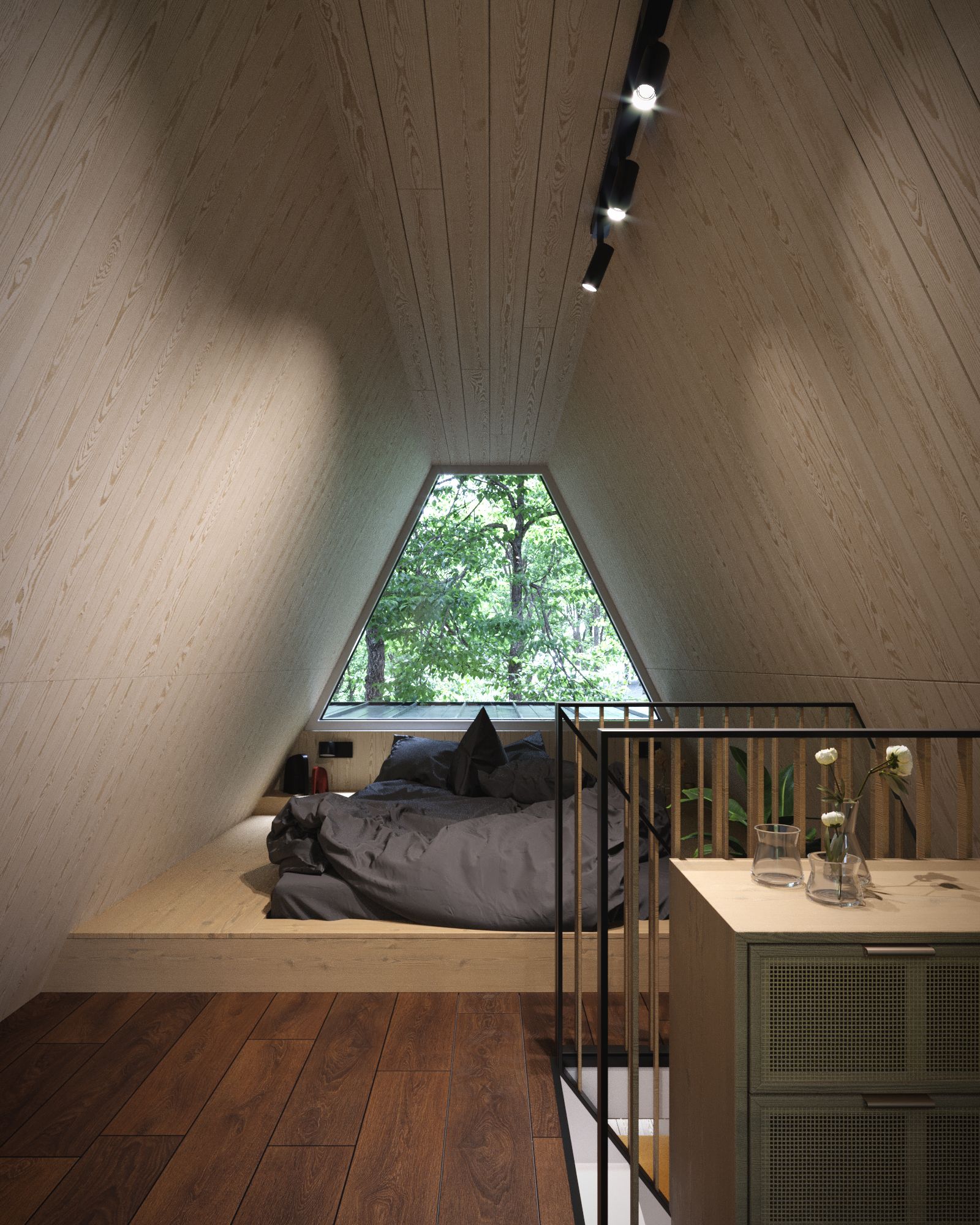
“We strived to create a place that brings the high-end standards of Budapest’s airbnb accommodations to the forest. I feel like a wide array of people are now looking for this type of recreation in Hungary. Here, in the woods, we try to provide a real, high-quality and private alternative to wellness hotels, where people can sit undisturbed on the terrace with a book in their hands and have a dip in the tub after hiking,” adds Levente. And it seems like this is all that people want nowadays, as forest cabins are gaining in popularity. Timi Hadnagy sees this like so:
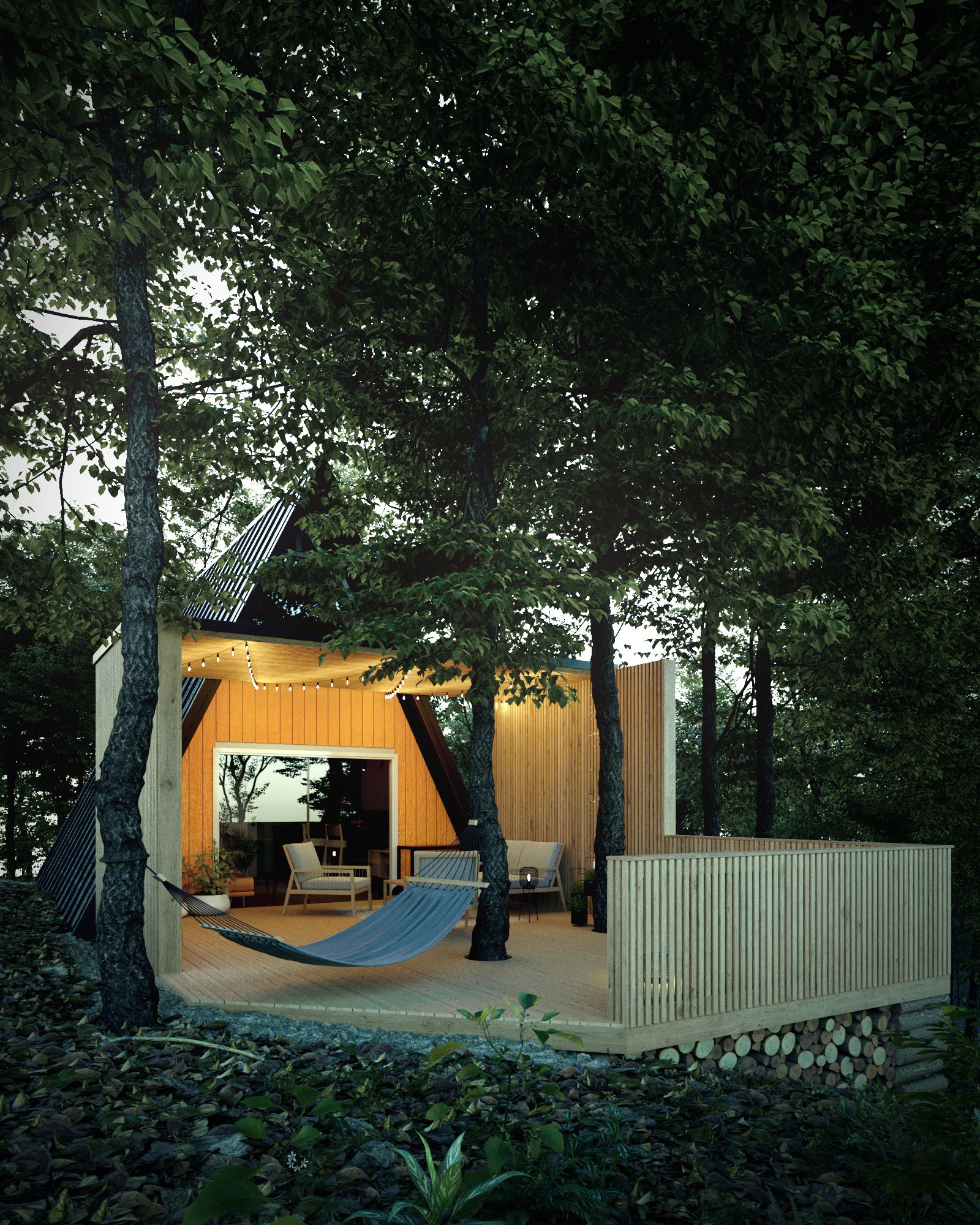
“It’s inherent to the bustling city lifestyle that people want to break out of their daily routine from time to time and crave the closeness of nature. In many cases, they don’t want another country, many new impulses or several hours of flying, just a little peace of mind and a place that maybe even lacks a phone signal… a smaller cabin serves as a perfect »hiding space« in any form: be it an original, retro one or a refurbished one that satisfies all needs. Since the beginning of the pandemic, there has been a particular increase of interest in such retreats, even in long-term ones. In many cases, our daily lives have changed so much that the permanent home office has created an opportunity to work from a house in the middle of a forest.”
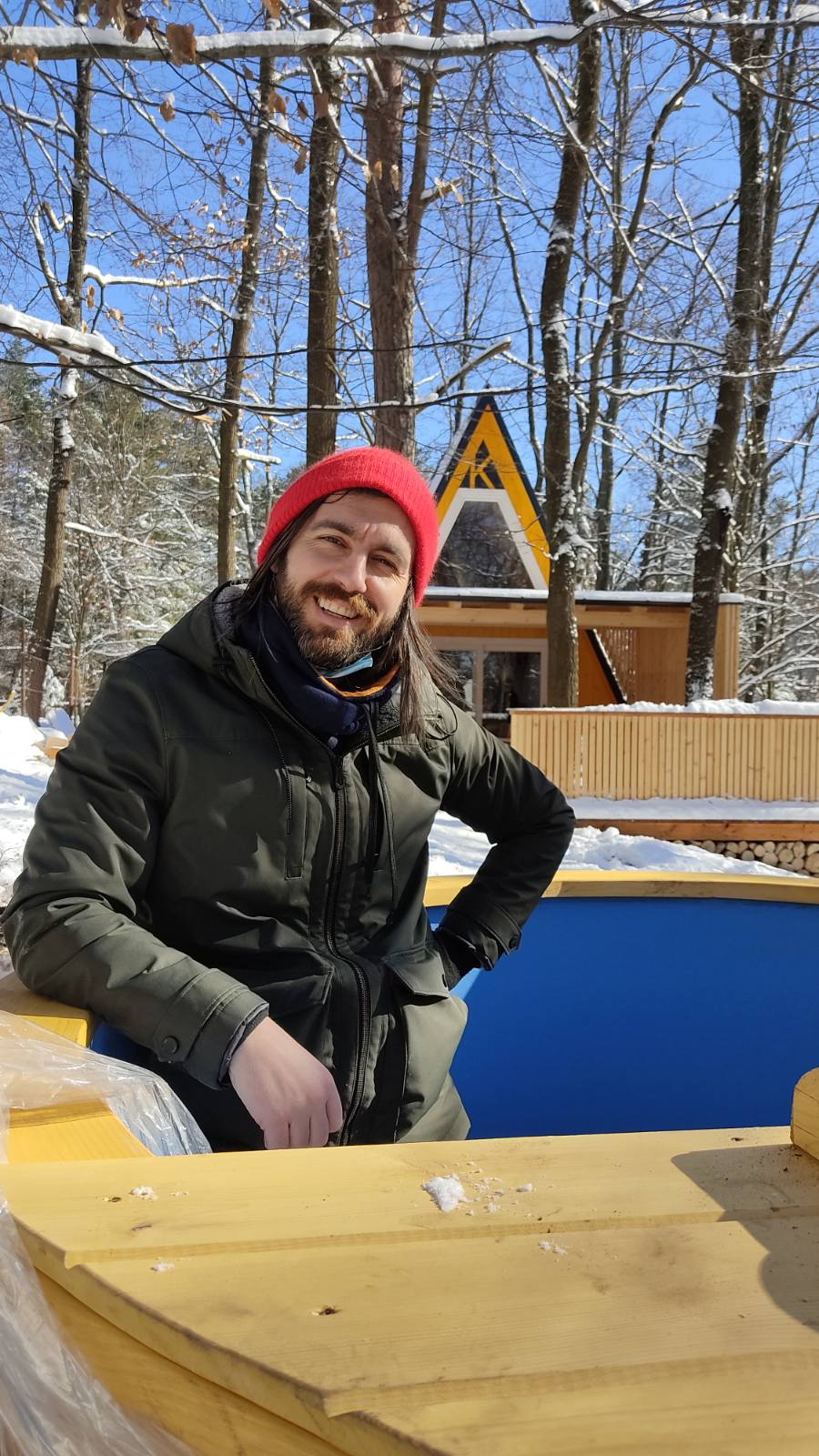
Coming back to Kabinka, after the planning process, came the nightmare of many: construction, which did not follow the first schedules either. Although they found a reliable local workforce and the carpenters started their work in June, the September handover couldn’t happen. Here comes the perhaps most useful piece of advice: you have to be prepared that there are far more unexpected tasks with such a small house than one might think. “An avalanche of tasks to be solved,” as Levente puts it. “The thing is, this is a lovely little project, but it’s also a business venture with a lot of work put into it. All those purchases, their location, choosing a roof covering option, and remembering its name, its source of supply… There are endless cases, plans and ideas behind it.” The difficulties, however, as in most cases, have paid off, as Kabinka is now ready to go. And although it will probably call for other maintenance tasks for the time to come, it is already welcoming guests, adapting to the restrictions of the pandemic by welcoming business travelers only. Levente now encourages others to follow their inner voice as he did. And the best starting point for that is a few days of silence in the mountains of Mátra.
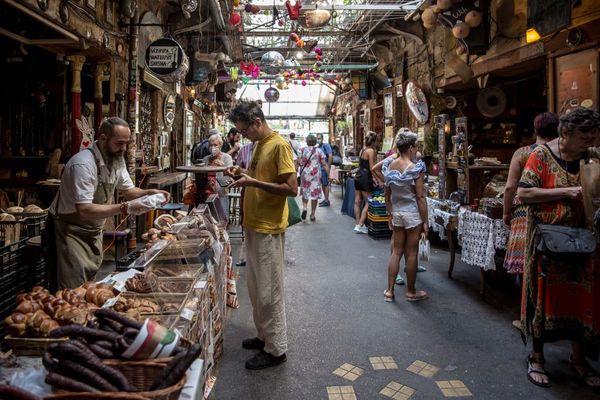
The groundbreaking markets in Eastern Europe | TOP 5

In sweet landscapes | SweetLand by Viktoria










